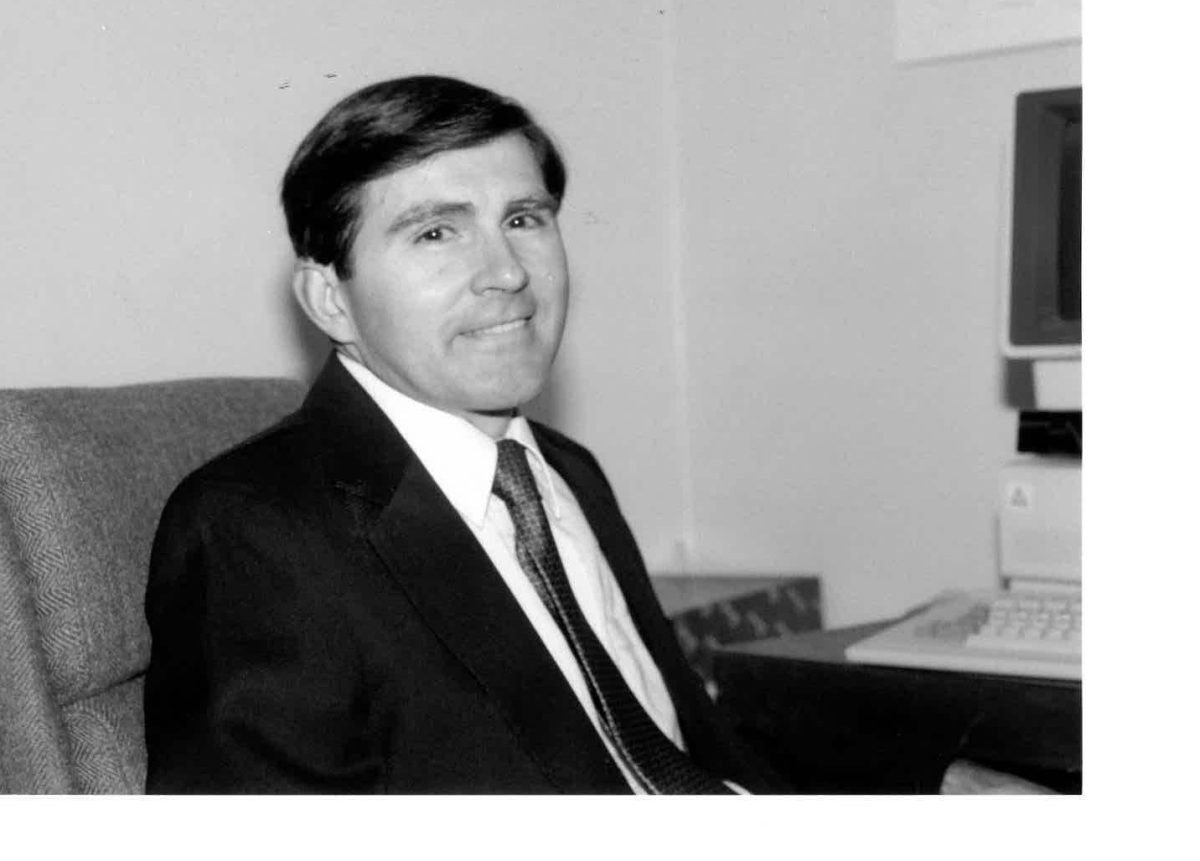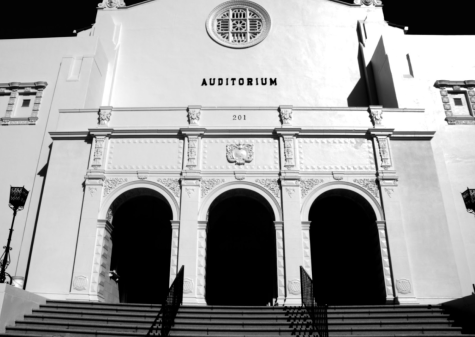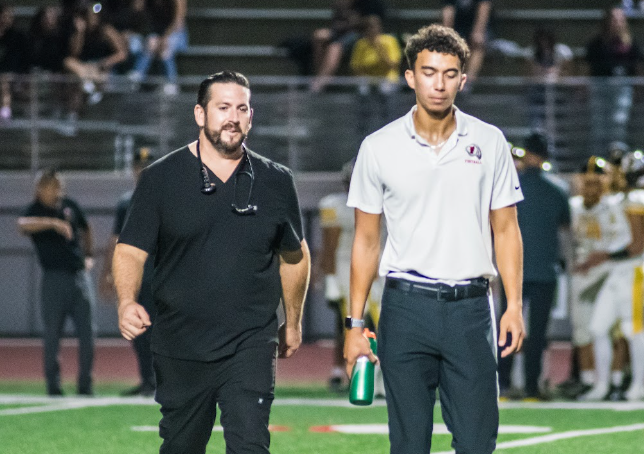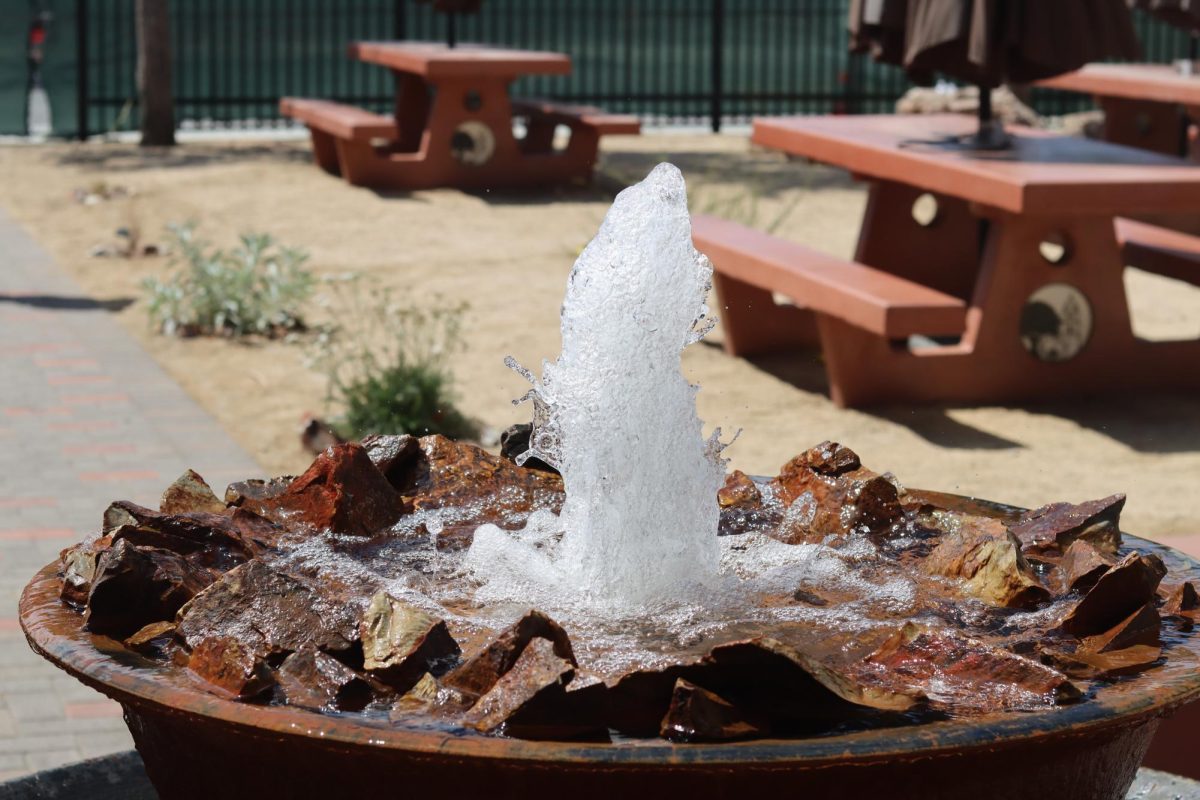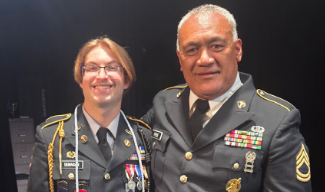Harvard University history professor William “Bill” Gienapp, FUHS Class of 1962, was one of the country’s most distinguished Civil War scholars. For his influential research, writing and teaching, Gienapp will be honored as one of this year’s Wall of Fame recipients.
The Fullerton Union High School’s Wall of Fame celebrates the success of the school’s exceptional graduates. Each year the community nominates alumni who are worthy of special recognition—for making significant contributions to the alum’s specialized field, providing important community service, or both.
Gienapp was born in Texas but lived in Iowa until his early teens when his family moved to Fullerton. He attended Fullerton High School where his father taught math. Gienapp was in German Club, on the Math Team, and played french horn in the marching band. He loved baseball.

After graduation, Gienapp attended UC Berkeley, where he was studying astrophysics. Yet it was in a history course taught by Civil War specialist Kenneth Stampp that Gienapp met Erica Kilian, whom he would marry in 1968.
“Outside of class one day, we spoke to each other in the library, and the question you always asked people at Berkeley was, ‘Where are you from?’” Erica said. “We were both shocked to find out that the two of us were both from Fullerton.”
Although they hadn’t known each other, they also both attended Wilshire Junior High. Erica graduated from Sunny Hills High School in 1963.
“I always look back on that as a very lucky thing,” Erica said. “The odds are amazing that out of 27,500 students we’d found each other and discovered we were from the same place.”
In addition to meeting his wife in Professor Stampp’s class, Bill became friends with classmate Irene Strauss.
“He was a really humble person and a great guy,” Strauss said. “He had what I would describe as a very dry, but excellent sense of humor.”
“One day I said to Bill, ‘You know, I’m so tired of taking notes’,” Strauss said. “It was a class I had at the end of a really long day and Bill agreed to do them for me. As I studied for finals, I read the notes and found they had funny comments and Bill’s oppositional points of view from what the lecturer was presenting.”
Bill’s humor and character influenced Strauss, who is originally from the Bay Area, in a big way. “My husband and I chose Fullerton to live in because we knew that Bill had, at least the last part of his high school years, grown up in Fullerton and I felt if Bill could turn out that way, then Fullerton was the place and so that’s why we moved here,” said Strauss who would go on to teach middle and high school history.
Bill was so enthralled with the Civil War course that he switched his major to history. He received a Master’s degree in History from Yale, but returned to Berkeley for his PhD so that he could again study under Kenneth Stampp. Afterward, he took an assistant professor position at the University of Wyoming.
“It was very difficult to get a job when he finished his dissertation,” Erica said. “He got one of the only jobs available in the country and it was in Laramie.”
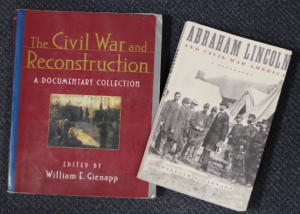
Gienapp was invited in 1989 to teach at Harvard where he taught undergraduate US history courses. He “developed the course Baseball and American Society at Harvard,” Erica said. “It was designed to show what an incredible impact baseball has had on American society. It was a way to study American history through baseball. It became one of the most popular courses on campus.”
According to his son Jonathan, the course was open to about 15 students, but 120 students tried to enroll.
“The devoted teacher that he was, my dad individually interviewed all 120 students to try to sort out which students would be admitted and which would not. After that, he taught it as a lecture course so everybody who was interested could attend,” Jonathan said. “He took teaching and mentoring very seriously. He’d go with grad students and undergrads to Fenway Park to watch the Red Sox.”
Jonathan, himself an associate professor at Stanford and author of 2024’s Against Constitutional Originalism said his father inspired him to follow a similar path.
“I’m a historian and a scholar, and I write books that really look at the past because of him,” Jonathan said. “He nurtured that curiosity and spirit.”
That same enthusiasm for teaching his students, Bill showed to Jonathan and his older brother Bill Jr. “There were few things that he seemed to like more in the world than watching our baseball games,” Jonathan said.
Bill lost his battle with blood cancer on Oct. 29, 2003. He was 59.
“He was an outstanding scholar, and his death over 20 years ago really was a loss for historians everywhere,” said Strauss, who nominated Bill for this year’s Wall of Fame honor. His accomplishments will be celebrated during an inductee ceremony on Oct. 25 at 5 p.m. in front of the administration building.

